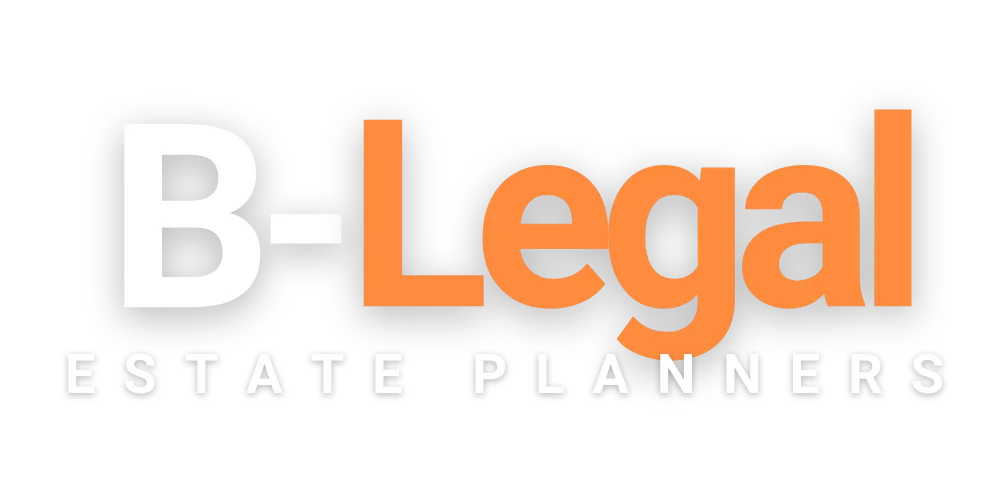Trusts
Protect your home and assets with a trust.
What advantages does a trust provide me?

Home protection
Secure your family home for future generations by placing it in a trust today, bypassing the probate process.

Less tax
Move assets out of your estate into a trust to lower taxes and save on inheritance tax for future generations.

Choice
Whether directly or through establishing trusts, safeguard the well-being of your loved ones and support charitable causes.
Trusts explained
What is a trust?
A trust is a method to safeguard your assets during your lifetime and beyond, ensuring financial stability for your loved ones. It also provides protection for vulnerable individuals with disabilities or financial challenges.
One significant advantage of a trust is its ability to minimize hefty inheritance tax bills, ensuring your estate's value is passed on tax-efficiently.
Trusts can be established during your lifetime, allowing you to control gifted assets as the trustee. They can also be arranged in your will to protect assets after your passing.
Trusts are valuable when considering potential future care fees, potential divorce of a family member, or safeguarding young or vulnerable family members.
We offer various trust types tailored to the nature and amount of assets, as well as their intended use.
How can I establish a trust?
If the information you've come across appeals to you, a trust could be advantageous. It's advisable to engage with us to gain insights into how a trust can complement your will. We provide complimentary, thorough consultations with our experts who will discuss your options.
In estate planning, a trust plays a crucial role. Depending on your situation, it's possible to have multiple trusts. The key is understanding the most effective ways to safeguard your well-being and that of your family, both in the present and for the future.
Can a trust bypass probate?
Yes, a trust can help you avoid probate.
When you transfer your home or assets into a trust, the trustees gain control over those assets. This can eliminate the need for probate, allowing the estate to be directly distributed to a beneficiary.
It's crucial to seek expert advice before placing assets into a trust. The trust should align with your overall estate plan, and your will should specify how assets not in the trust should be distributed to the appropriate individuals or trusts.
To ensure a smooth process, we recommend reviewing your estate with professional guidance while you and the involved parties are still in sound mental capacity.
FAQs
Why have a Trust?
A Trust can offer a layer of protection for the assets held within it. For example, if a beneficiary were to go through a divorce or face bankruptcy, assets in a Trust may be shielded from being claimed by a former spouse or a trustee in bankruptcy.
When should I set up a Trust?
A Trust can be created in your Will to commence upon your death, or it can be established during your lifetime and become effective immediately. You can also leave additional funds to the trust in your Will, and we can discuss the various options available to you.
What can I put into Trust?
While money and property are the most common assets placed in a Trust, you can include virtually anything. Trustees distribute items from the Trust to beneficiaries, which may include a child with a learning disability, based on the terms of the Trust and any guidance provided in a letter of wishes.
Are Trusts subject to Tax?
Trusts are subject to their own tax regulations. They can also serve as effective tools for tax planning. Transferring assets to a Trust during your lifetime may reduce inheritance tax upon your death by decreasing the value of your chargeable estate. Additionally, placing assets in a Trust for a beneficiary with lower income and gains can result in reduced income and capital gains tax rates.
How does a Trust work?
A Trust involves a legal arrangement where a Settlor (the person creating the Trust) transfers assets to Trustees (those responsible for managing the Trust) for the benefit of specified beneficiaries. The Trustees hold and manage the assets based on the terms and instructions outlined in the Trust deed.
What are the key roles in a Trust?
In a Trust, there are typically three key roles:
Settlor: The person who establishes the Trust by transferring assets into it.
Trustees: Individuals or entities responsible for managing and administering the Trust assets.
Beneficiaries: Those who benefit from the Trust assets as outlined in the Trust deed.
Can I be a Trustee of my own Trust?
Yes, it's common for Settlors to also be Trustees of their own Trusts. However, it's important to understand your responsibilities as a Trustee, including fiduciary duties to act in the best interests of the beneficiaries.
How can a Trust protect assets?
Trusts can protect assets by legally separating them from personal ownership. This separation can help safeguard assets from various risks, including creditors, legal claims, and certain tax liabilities.
Is professional advice needed to set up a Trust?
While it's possible to create a simple Trust independently, complex Trusts or those involving significant assets often require legal expertise to ensure they meet legal requirements and financial objectives.
How is a Trust different from a Will?
A Trust operates during your lifetime and after your death, managing and distributing assets according to your wishes. In contrast, a Will takes effect only after your death and goes through probate.
Clients Feedback
Explore Your Options: Online, Zoom, or Home Appointments - We Have a Service to Suit Every Budget
Navigating the complexities of Power of Attorney is made easy with B-Legal's comprehensive services. Whether you prefer the convenience of online, Zoom, or home appointments, we have a solution that fits your needs and budget.
Experience the simplicity of establishing a Power of Attorney online with B-Legal. Our platform connects you with accredited legal advisors who specialize in Power of Attorney arrangements, ensuring a secure and streamlined process.
Whether you're planning for future healthcare decisions, financial management, or safeguarding your assets, our digital solutions are designed for clarity and ease of use. B-Legal's commitment to accessible and trustworthy online legal services transforms how you prepare for tomorrow.
Protect your autonomy and ensure your wishes are honored with B-Legal's expertly guided online Power of Attorney services. Trusted by clients nationwide, B-Legal stands as a beacon of innovation in online estate planning.
Discover why our clients recommend B-Legal for seamless, professional online Power of Attorney services.
Our services

Wills with Trusts
Wills with Trusts combines estate planning methods, enabling specific asset distribution, potential tax benefits, and controlled support for beneficiaries after the testator's demise.

Lifetime Trusts
Lifetime Trusts, established during the settlor's lifetime in the UK, offer strategic estate management, asset protection, and tailored beneficiary provisions for future financial security.

Lasting Power of Attorney
Lasting Power of Attorney (LPA) in the UK enables individuals to appoint trusted persons to manage their health, welfare, or financial affairs in potential future incapacity scenarios.
Schedule Your Free Consultation with Our Trust Specialists
I agree to terms & conditions provided by the company. By providing my phone number, I agree to receive text messages from the business.
Prefer a Home Visit ? Book a home visit
Prefer a face-to-face discussion about your estate planning? B-Legal offers the convenience and comfort of home visits. Our trusted associates are ready to meet you in your own home, ensuring a personalized and private experience.
During the visit, they will provide detailed guidance on wills, powers of attorney, and trusts, tailored to your unique circumstances. Schedule your home visit today and embark on your estate planning journey with the utmost confidence and ease.
Insights and Advice

Downsizing Your Home for Estate Planning: A Wise Move?
Is it Wise to Downsize? An In-Depth Look at Home Downsizing for Tax Purposes
Downsizing, the act of moving into a smaller, more manageable property, is often considered a practical decision for those approaching retirement or looking to simplify their lifestyle. However, when it comes to estate planning, the implications of downsizing extend beyond just lifestyle changes; it can significantly impact one’s inheritance tax obligations.

The Financial Appeal of Downsizing
Inheritance Tax Benefits: One of the primary incentives for downsizing is the potential reduction in inheritance tax liability. A smaller home generally means a lower estate value, which can be crucial if your current property's value pushes your estate above the £325,000 inheritance tax threshold.
Increased Cash Flow: Selling a larger property and moving into a smaller one can release significant equity. This liquidity can be redirected into savings, investments, or even as gifts to family members, which can also play a part in reducing your future inheritance tax liabilities.
The Emotional and Practical Side
Sentimental Value: The family home is often more than just property; it's a treasure trove of memories. Leaving this behind can be emotionally challenging and is a significant factor to consider.
Lifestyle Adjustments: Downsizing often means adjusting to a smaller space, which might affect your lifestyle. This could include having less room for hosting family gatherings or pursuing hobbies that require space.
The Costs of Moving: The financial benefits of downsizing can be offset by the costs associated with moving, such as estate agent and legal fees, and the physical act of moving itself.
Estate Planning Considerations
Professional Advice: It's essential to consult with estate planning experts, like b-legal.co.uk, who can provide comprehensive advice considering your overall financial and estate planning strategy.
Long-Term Planning: Downsizing should be viewed as a component of a broader estate planning strategy, rather than a standalone solution. Other elements like wills, trusts, and lifetime gifting should also be considered to create a balanced and effective estate plan.
Conclusion
Downsizing can be a smart move for estate planning, but it's not without its challenges. The decision should be well-thought-out, considering both financial benefits and personal implications. Professional advice is key to ensure that this step aligns with your broader estate planning goals.
We simplify the process of creating
a will or granting power of attorney.
B Legal operate as a company registered in England & Wales Privacy Policy Terms & Conditions
Our registered office is Bankwood Lane, Rossington, Doncaster, England, DN11 0PS

